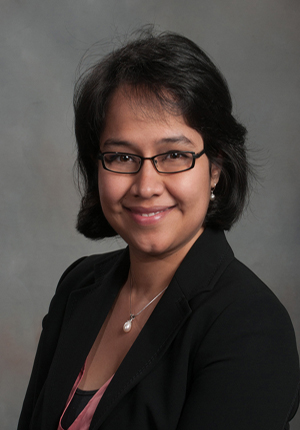Diversity and Inclusion for Communities and Contributors/DI Call 07 14 2018
July 14th, 2018 - Gender-biases Embedded in Software
Welcome! This is our 5th D&I in Open Source Call. You can find past calls on our Youtube channel, and future calls listed on our main wiki page.
We look forward to seeing you! This call will take place during our Diversity Social, on July 14th, and Mozilla Portland Office. Sorry for the late timing for many of our global friend, we will record as usual!
- 5:30 PM PDT (convert to local time)
- Etherpad Agenda
- [Video Link TBD]
- YouTube Channel (streaming and watch later)
- Join our mailing list to get notifications about future calls
Featured Speaker: Anita Sarma
Anita Sarma is an Associate Professor at Oregon State University. Before this she was an Assistant Professor at University of Nebraska, Lincoln; a post-doctoral scholar at Carnegie Mellon University, and a doctoral student at University of California, Irvine. Through this journey her passion has been on helping humans make better software and work together. Currently, a primary focus of her research is in increasing gender inclusivity in OSS. Her work has been funded through the National Science Foundation (NSF) and Airforce (AFOSR), and is the recipient of the NS CAREER award.
Follow Anita on Twitter
Talk Description
Gender and diversity inclusiveness in tech companies is receiving a lot of attention these days, but it overlooks a potentially critical factor: the software itself. Research shows that individual differences in how people problem-solve, for example when contributing to open source projects, tend to cluster by genders. If open source tools/technology support only one problem-solving style (usually, styles favored mostly by men), it means that others have to overcome extra problem-solving barriers to contribute.
In this talk, Dr. Sarma will describe a field-tested method based on five facets of statistical gender differences in preferred problem solving styles, and will then present what the method reveals about open source tools and infrastructure — namely that the tools themselves are deeply implicated in gender disparities in open source communities. The talk will close with concrete ways in which you can get involved in removing gender biases from the software the community produces, how you can include inclusivity best practices in the design of the software and your development process, and more.
